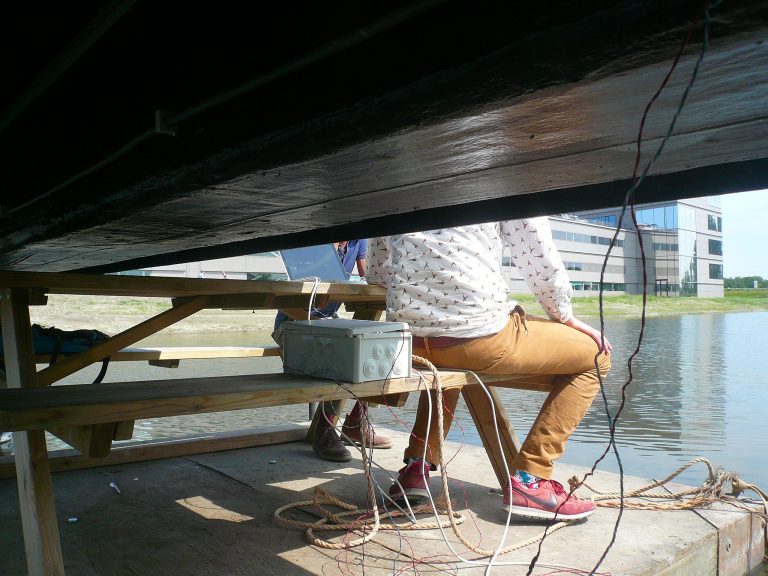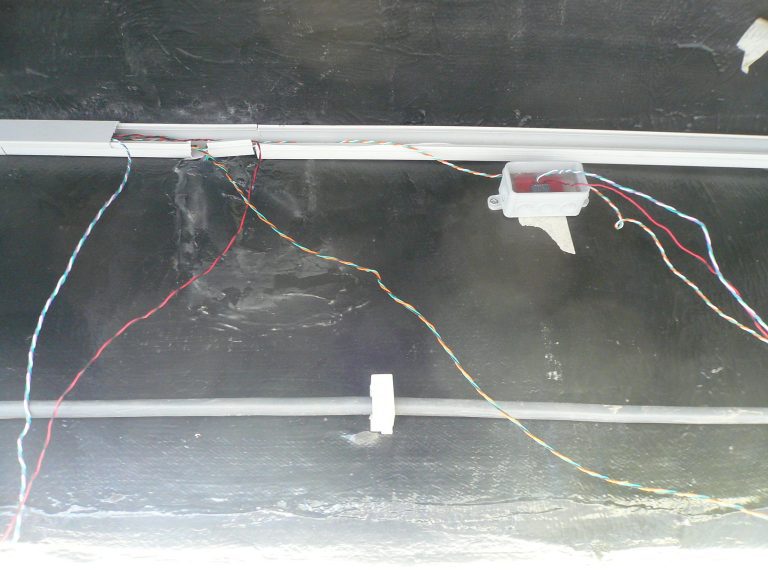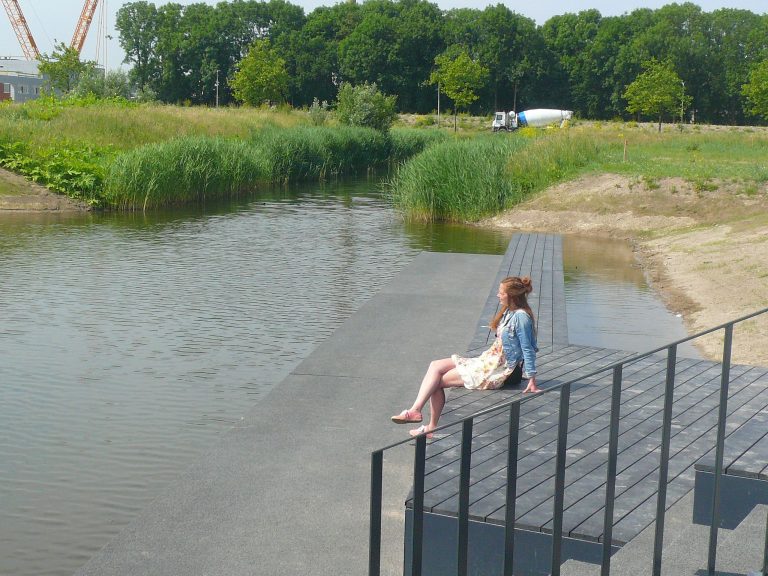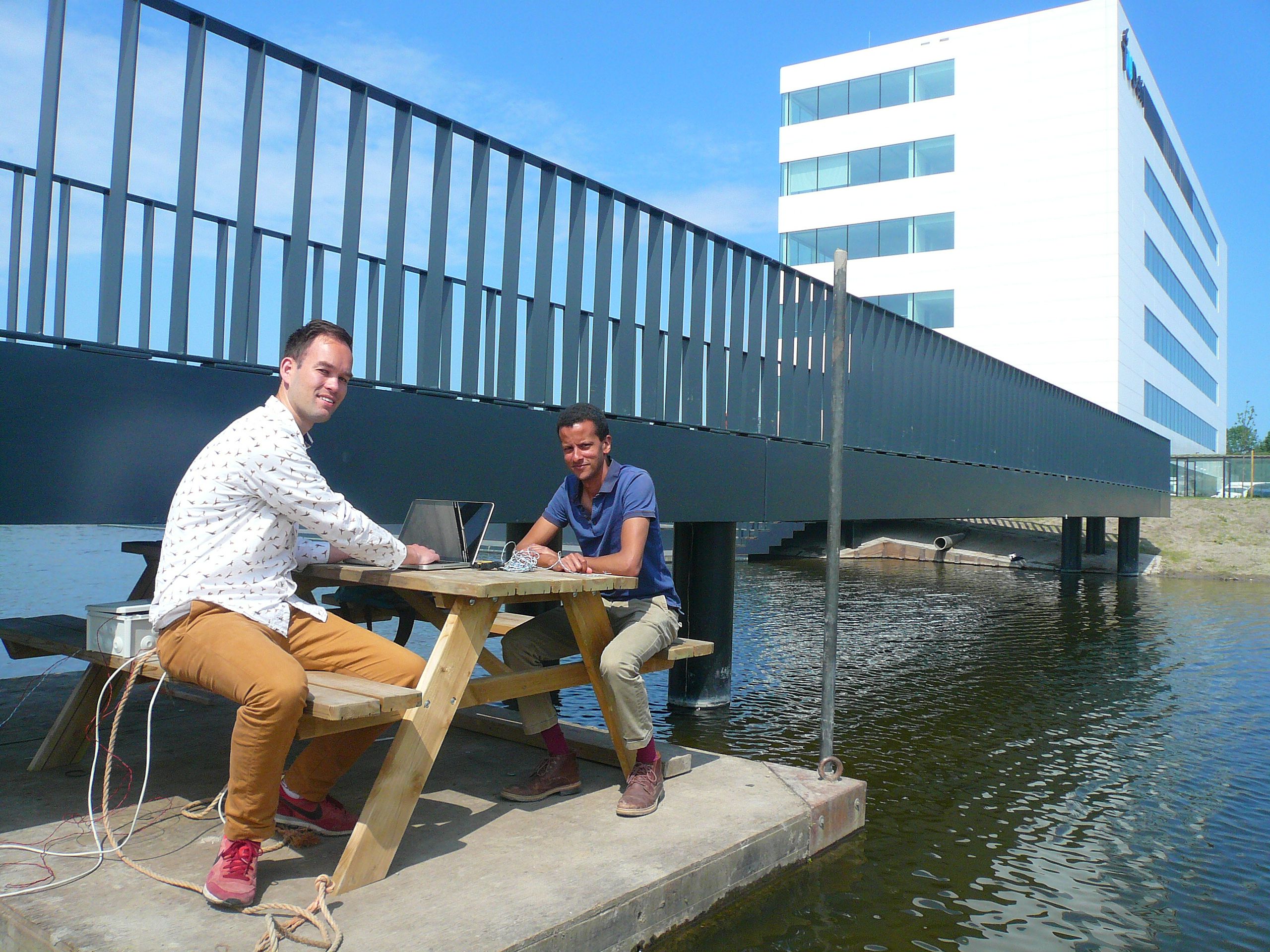The foot and cycle bridges in the TU Delft startup quarter Technopolis carry dozens of sensors. These unique composite bridges have been developed by the YES!Delft technostarter MOCS.
MOCS has specialised in durable and lightweight products for the maritime, offshore and civil industry. On Friday, June 10th, 2016 they will present four bridges and two terraces at Technopolis, next to their own office in the YES!Delft II building. “When we’ve got customers, we can just point out of the window to show our product,” said Dean Baggen, project engineer at MOCS. TU Delft ordered the bridges for the Technopolis development area.
MOCS has specialised in composite materials for their bridges. The fibreglass reinforced polyester is strong, light and durable. The light construction makes placement of the bridges easier, and because polyester is chemically inert, it will not be corroded by salt, and it is low-maintenance.
What makes these bridges unique however is not so much the material (MOCS has produced more bridges in Delft) but the built-in sensors. The one next to the YES!Delft building contains 37 sensors for measuring load, vibrations, temperature and stretch. Traditional stretch sensors have been used alongside optical fibres for the same measurements.
The sensors are online, making it easier for the administrator to decide when to put salt to prevent the bridge deck from freezing up. It also allows the responsible parties to monitor the behaviour and the ageing of the bridges. If for example a car incidentally crosses one of the bridges, it will not go unnoticed.
Although the composite bridge is expected to last 60 to 80 years, it will get less rigid over time. The sensors will register a decrease in the resonance frequency of the bridge, Baggen expects.
The MOCS spin-off FWD has produced the bridges. Bridge building specialist GROOT LEMMER recently bought the daughter company. MOCS itself is developing further composite products, like pipes that can be coupled instead of glued together.






Comments are closed.